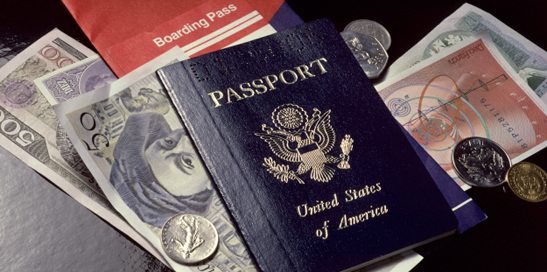Just last month, I took a ten-day business trip to Australia. I was eager to see the sights and spend time doing business in a beautiful landscape, but I also wanted to be smart about my money while abroad. To make sure that I wouldn’t overpay for my business and personal expenses on this trip, I did my homework ahead of time. I discovered some common costly mistakes travelers make that are easily avoidable with a little preparation. So if you’re planning to take a business – or personal – trip out of the country anytime soon, I highly recommend doing some of your own research as well as following the tips below.
- Do understand the details of your cards. Even if you use your credit card every day, you probably don’t know what the fine print says on that initial offer you signed. Go to a website like CardHub to find out if your card has a foreign transaction fee. If it does, figure out a different card you can use that doesn’t pack this associated charge. Also, be aware that certain countries overseas require a smart chip, so look into this whether you were planning to get a new card or not. If you have to get a new card for any variety of reasons, apply for one that has no foreign transaction fee and has a smart chip in it.
- Don’t fall prey to poor currency exchanges. If you find yourself out of the country with nothing but U.S. dollars, it’s tempting to go anywhere you can to exchange your cash into the proper local currency. But please – don’t trust just anyone with this task. Before you depart, shop banks near you to find which one has the best conversion rates and get your money swapped there. Avoid airport money exchanges, and once you’re in your final destination, don’t allow merchants to convert your money for you. Neither is the safest or most cost-effective to handle switching currencies.
- Do communicate with your bank. Most banks track your spending so they can alert you if something seemingly fraudulent has taken place. They will see a trip abroad as a red flag, and may tie up your account as a result. Nix the potential of encountering this hassle by being proactive. Call your bank ahead of time, and let them know where you’re planning to travel and for how long. Ask them if they have any suggestions for you for the particular region you’re going to, or with travel in general. Since they’re an extra set of eyes for your finances, it’s best they know where you’re headed.
- Don’t be lackadaisical with how you pay. Once you make it to your country of choice, don’t let your diligence slide. When anywhere outside of the U.S., avoid making purchases with your debit card. Another good rule of thumb is to only use ATMs at foreign banks during open hours. If you fail to remember these two tips, you’re opening yourself up to financial vulnerability on foreign soil.
Take the time to plan for your overseas trip from a financial standpoint, and you’ll save some money and free yourself up to enjoy the excursion without worry. It won’t take long, and your financial security will thank you for it.




